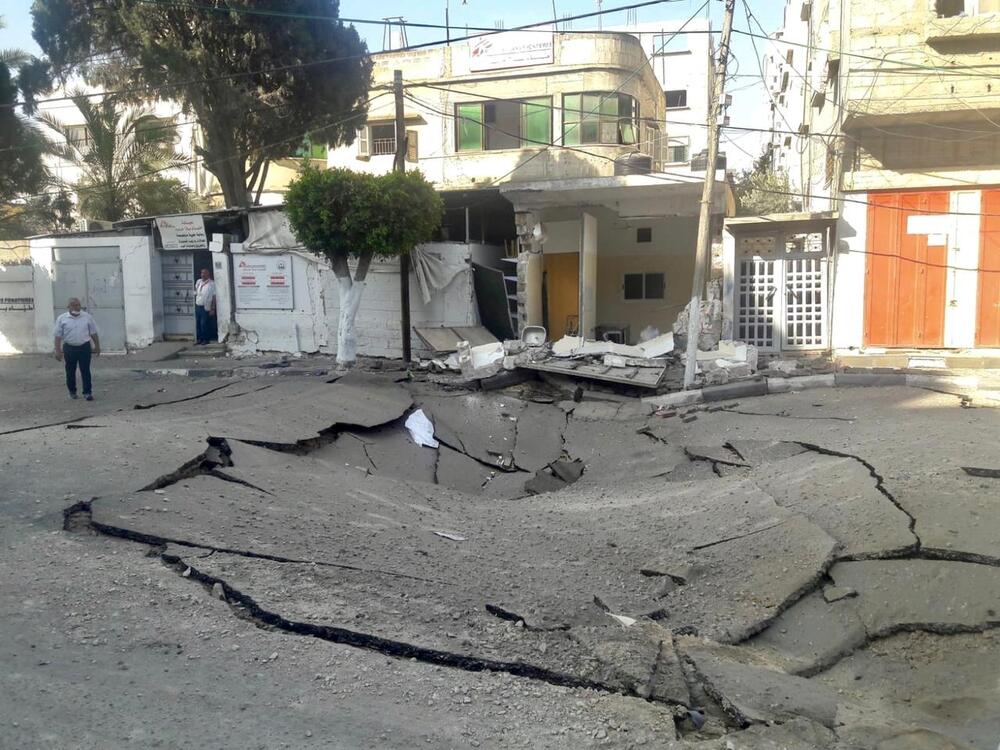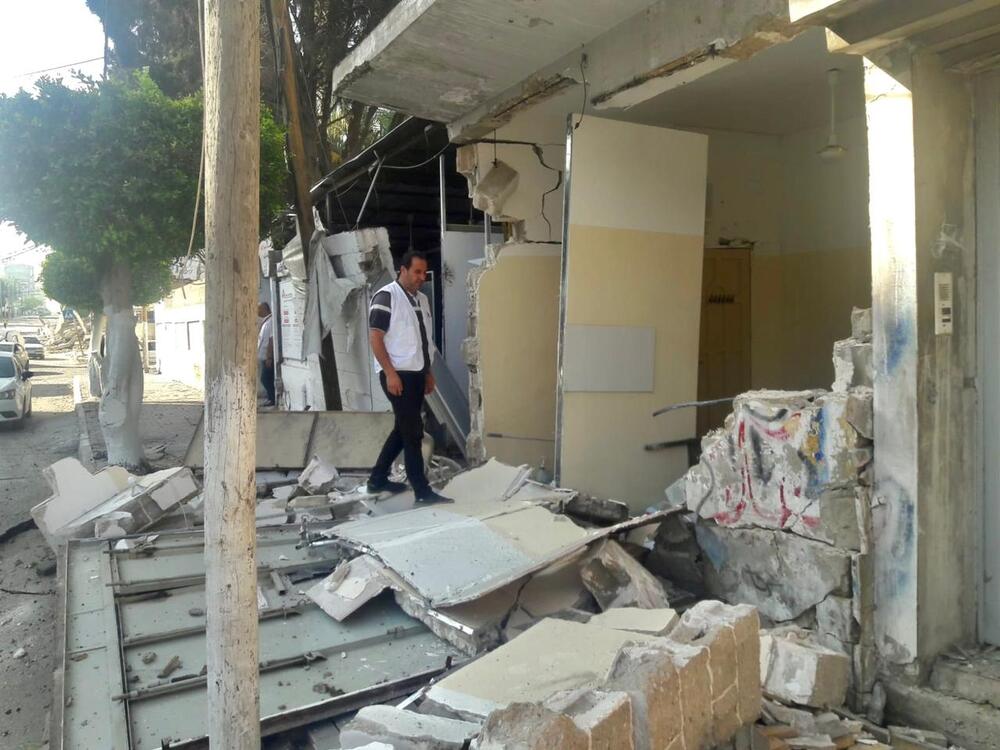Gaza: Inexcusable Israeli airstrikes kill scores of civilians and damage MSF clinic
On Sunday 16 May 2021, Israeli airstrikes in the area of the MSF clinic in Gaza City killed at least 42 people including 10 children, according to the Gaza Ministry of Health.
The bombing in the area also damaged our clinic – which provides trauma and burn treatment – leaving a sterilisation room unusable and a waiting area damaged. No one was injured in the clinic.
“The situation is critical. The number of wounded and displaced people is mounting while additional humanitarian personnel and supplies still cannot enter Gaza.”
A Médecins sans Frontières / Doctors Without Borders (MSF) staff member who was present described a scene of utter horror as huge explosions shook the neighbourhood and women and children ran out onto the street screaming and crying.
“The situation has already been horrible this week with the number of civilian casualties rising daily, but when I saw the damage to the area and the MSF clinic the morning after the attack, I was speechless,” says Dr Mohammed Abu Mughaiseeb, MSF Deputy Medical Coordinator in Gaza.
“Everything was impacted – houses, roads, trees. The clinic, where we see over 1,000 children a year with burn and trauma injuries, was missing a wall and debris was laying everywhere.
“The clinic is now closed, not just because of the damage to its structure but also because the road to access it has been destroyed and the area is still unsafe.”
Access to healthcare for casualties with life-threatening injuries is being severely restricted as Israeli airstrikes have damaged many roads leading to hospitals.
Many medical staff are also concerned for their safety while on their journeys to work and some medical supplies are running low.
Two doctors were among the 42 people killed in the airstrikes near our clinic.
As of noon local time on 17 May, at least 200 people in Gaza have been killed including 59 children, according to the Ministry of Health.
In Israel, 10 people including two children have been killed by rockets and missiles fired from Gaza by Palestinian armed groups.
Critical situation
“The horrendous attacks on civilians and civilian infrastructure that we are witnessing in Gaza are inexcusable and intolerable,” says Ely Sok, Head of MSF in the Occupied Palestinian Territories.
“The situation is critical. The number of wounded and displaced people is mounting while additional humanitarian personnel and supplies still cannot enter Gaza.
“The local health authority is reporting being 24 hours away from running out of blood bags, meaning they cannot transfuse patients with blood, a key intervention in caring for war wounded.”
An MSF team is working in 24-hour shifts to support the medical staff in the emergency room and operating theatres of Al-Awda hospital in the area of Jabalia, treating 40 to 45 patients with deep wounds and severe burns daily.
MSF also donated medical supplies to various medical facilities in the Strip over the course of last week.
However, insecurity means that we cannot operate our normal burns and post-operative trauma care programmes.

Help us prepare for the next emergency
Collateral damage
As Israel continues aerial and artillery bombardment of Gaza, over 38,000 Palestinians have fled their homes for safety according to the United Nations. At least 2,500 people have become homeless, including some MSF staff.
Many of our staff have found refuge in their relatives' homes, and MSF has found temporary shelter for those who could not.
“Israel needs to stop these attacks in the heart of Gaza as we have seen time and again that they kill civilians no matter how 'targeted' they are. In such a densely populated place it is not possible to limit the effects of the bombing,” says Sok.
“Safe access for humanitarian staff and supplies also needs to be urgently arranged.”
MSF in Palestine
Palestine comprises parts of modern Israel and the Palestinian territories of the Gaza Strip and the West Bank.
This region, known as the Holy Land, holds religious significance for Christians, Muslims and Jews, and has been the object of conflicting claims, which has led to prolonged violence and, at times, open warfare.
Médecins Sans Frontières/Doctors Without Borders (MSF) first worked in Palestine in 1989.
Today, we provide medical and psychological assistance to people affected by the ongoing conflict, continuing our long-running mental health programmes on the West Bank and support to burns and trauma victims in the Gaza Strip.

